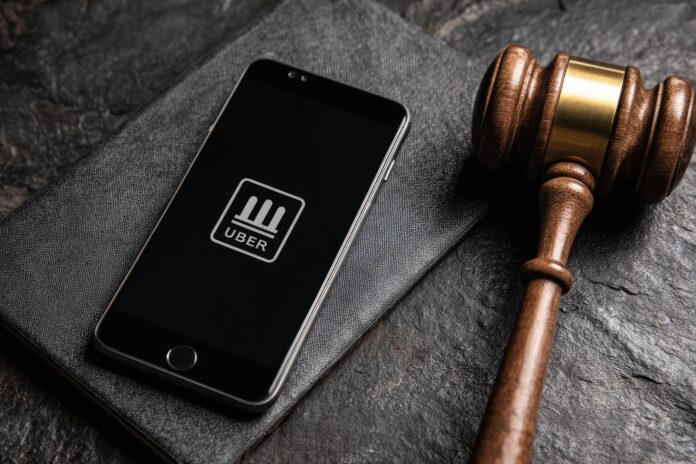Introduction: Why This Patent Dispute Matters
Patent dispute is a phrase that often signifies drawn-out legal drama, but rarely do such cases possess the power to fundamentally alter a global business model. Most importantly, the current patent battle enveloping Uber is not just about compensation for innovation—it’s about the very foundation of how ride-hailing works. If the outcome doesn’t swing in Uber’s favor, the repercussions could be far-reaching, sending shockwaves through the entire gig economy and affecting everyday app users worldwide.
The Roots of the Patent Dispute
This years-long patent dispute traces its lineage back to 2013, when Hailo, an early player in the ride-hailing space, secured a suite of patents covering the methods for digital ride requests, location-based driver matching, and the seamless processing of ride bookings. Over time, these foundational patents traded hands—from Hailo to a series of tech-holding companies, eventually coming under the control of Genie Technologies. Presently, Genie alleges that Uber’s groundbreaking platform has relied on proprietary methods they now rightfully own. According to public filings and industry watchdogs, these patents underpin the DNA not just of Uber’s service, but that of nearly every major ride-sharing platform on the globe.
The Mechanics: What’s Really at Stake
At the core of this patent dispute is Uber’s real-time pairing of riders with nearby drivers using GPS, mobile apps, and cloud-powered algorithms. Genie Technologies asserts that key aspects of these functions—dynamic geo-location and automated request matching—directly infringe their patent portfolio. If courts side with Genie, Uber might face devastating consequences, including massive backdated royalties and future licensing fees. However, what truly threatens Uber isn’t just the money; it’s the threat of an injunction. Courts could, in the worst case, force Uber to suspend app functionality in numerous markets until their platform is reengineered or a settlement is reached. Because Uber’s technology stack is both complex and interconnected, any forced change could impact efficiency, user experience, and market share.
The Legal Timeline: A Decade in the Making
This legal drama has been unfolding for nearly a decade. Genie Technologies took up the patent torch in the late 2010s, initiating lawsuits across major U.S. jurisdictions as well as in the UK. Over time, the courts denied multiple Uber attempts to dismiss the claims, bringing the case perilously close to trial or an out-of-court settlement. Besides that, other ride-hailing firms like Lyft and Bolt have faced similar inquiries or have watched this case closely, understanding that any precedent set could soon haunt them too.
Potential Business Fallout for Uber
Uber is no stranger to regulatory hurdles, market bans, or costly legal fights. Yet, a negative outcome here would hit at its strategic core. Analysts believe an adverse decision would inflict short-term financial pain in the form of billion-dollar settlements and steep licensing agreements. Longer term, however, Uber may need to pivot its technology stack aggressively—and rapidly—just to remain compliant. Because such reorientation diverts resources away from innovation and growth, it could hamper Uber’s ability to keep up with local rivals or emerging market disruptors. Most importantly, uncertainty like this can erode investor confidence and brand reputation, making expansion into new regions much riskier.
Implications for the Gig Economy at Large
Beyond Uber, the broader gig economy stands on shaky ground. Ride-sharing, food delivery, freight logistics—all depend on similar core technologies in app-based dispatch and matching. If this patent dispute sets a legal precedent, any company using comparable matching algorithms could become a target for litigation, or find itself compelled to license similar patents. This could raise costs throughout the sector and stifle small innovators, because only giant corporations would have the legal and financial muscle to fight such battles. Furthermore, if patent holders actively seek enforcement, we might see an explosion of lawsuits that could reshape the entire tech-driven service industry.
The Technology Dilemma: Redesign, Settle, or Exit?
Therefore, Uber faces a challenging decision matrix: settle, fight, or innovate around the contested patents. Settlement would likely entail paying large sums and agreeing to ongoing royalties, but it might preserve business continuity. alternatively, Uber could embark on a major engineering sprint to develop new systems, aiming to bypass Genie’s claims altogether. This option, while potentially preserving IP independence, risks rollout delays and compatibility issues. The nuclear option—ceasing operations in heavily affected jurisdictions—remains unlikely but not impossible, especially if courts grant broad injunctions.
The Broader Industry Watch
For competitors and tech startups, this patent dispute serves as a timely reminder about the importance of thorough IP due diligence. Besides feisty legal battles, firms should assess their own exposure, audit their tech stacks, and seek proactive licensing where necessary. Meanwhile, some speculate that resolution of this case—be it via settlement or judgment—could spur a wave of consolidation, as smaller companies with less IP protection might seek mergers for survival.
What’s Next for Uber and Users?
Uber has made it clear that it intends to contest any adverse decisions all the way up the appellate ladder. Therefore, even with a judgment, resolution might stretch years further, during which time Uber could face intermittent regional restrictions. For riders and drivers, most changes would be invisible—until prices rise or services temporarily disappear. Therefore, staying informed about how this legal battle unfolds is crucial, especially for those who rely on Uber as an income source or daily convenience.
Conclusion: A Defining Moment for Mobility Tech
In summary, this decade-old patent dispute is not a routine legal fight over royalties. It is a deep challenge to the mechanisms that make the sharing economy possible. Its outcome could force Uber—and its entire sector—into an era of stricter technology compliance, higher operational costs, and potentially slower innovation. As the case edges toward resolution, the world watches, aware that the future of digital mobility could turn on the decision in one courtroom.



